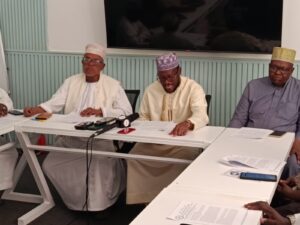TAWU to Sue Uber and Bolt Over ‘Digital Exploitation’ and Driver Rights Violations

TAWU Secretary-General Nicholas Otieno Ogola. (Photo/ Courtesy)
By Mbungu Harrison
Email, thecoastnewspaper@gmail.com
The Transport Workers Union Kenya (TAWU–Kenya) has announced its intention to file a constitutional petition against global ride-hailing giants Uber and Bolt Operationsover what it terms as unfair, exploitative, and unlawful digital labour practices.
TAWU Secretary-General Nicholas Otieno Ogola, accuses the two companies of violating drivers’ constitutional rights through arbitrary account deactivations, excessive commission deductions, opaque data practices, and exploitative working conditions.
“Drivers are not slaves of the algorithm. They deserve dignity, fair compensation, and protection under Kenya’s labour laws,” said Ogola.
According to the union, the petition — which will be lodged at the Employment and Labour Relations Court — seeks to enforce driver rights under Articles 41 (fair labour practices), 46 (consumer rights), and 47 (fair administrative action) of the Constitution of Kenya.

“Drivers are called ‘independent contractors,’ yet Uber and Bolt control every element of their work pricing, penalties, and deactivation. That is not independence; that is exploitation.”he added.
TAWU–Kenya alleges that the two digital platforms continue to deactivate driver accounts without due process, amounting to “digital dismissal.”
It also claims that they Deduct commissions above the legally mandated 18% cap, as set out in the Digital Hailing Regulations, 2022,Process driver data without transparency, contrary to the Data Protection Act, 2019 and also Unilaterally control pricing, resulting in diminished driver earnings.
The union further confirmed that it has formally placed several state and regulatory agencies on notice, including the Cabinet Secretary for Labour and Social Protection, the National Transport and Safety Authority (NTSA), the Competition Authority of Kenya (CAK), and the Office of the Data Protection Commissioner (ODPC).
TAWU–Kenya has given Uber and Bolt 14 days to address the issues raised in its formal notice. Failure to do so, the union said, will prompt it to proceed with the constitutional petition.

The union is also working with platform driver associations and civil society organisations to consolidate evidence, prepare affidavits, and pursue legal redress aimed at reshaping Kenya’s digital transport sector.
“Our petition is not just about drivers — it’s about protecting the future of work in Kenya’s digital economy,” Ogola added.
If successful, the case could set a landmark precedent for how digital labour platforms operate and are regulated in Kenya.





